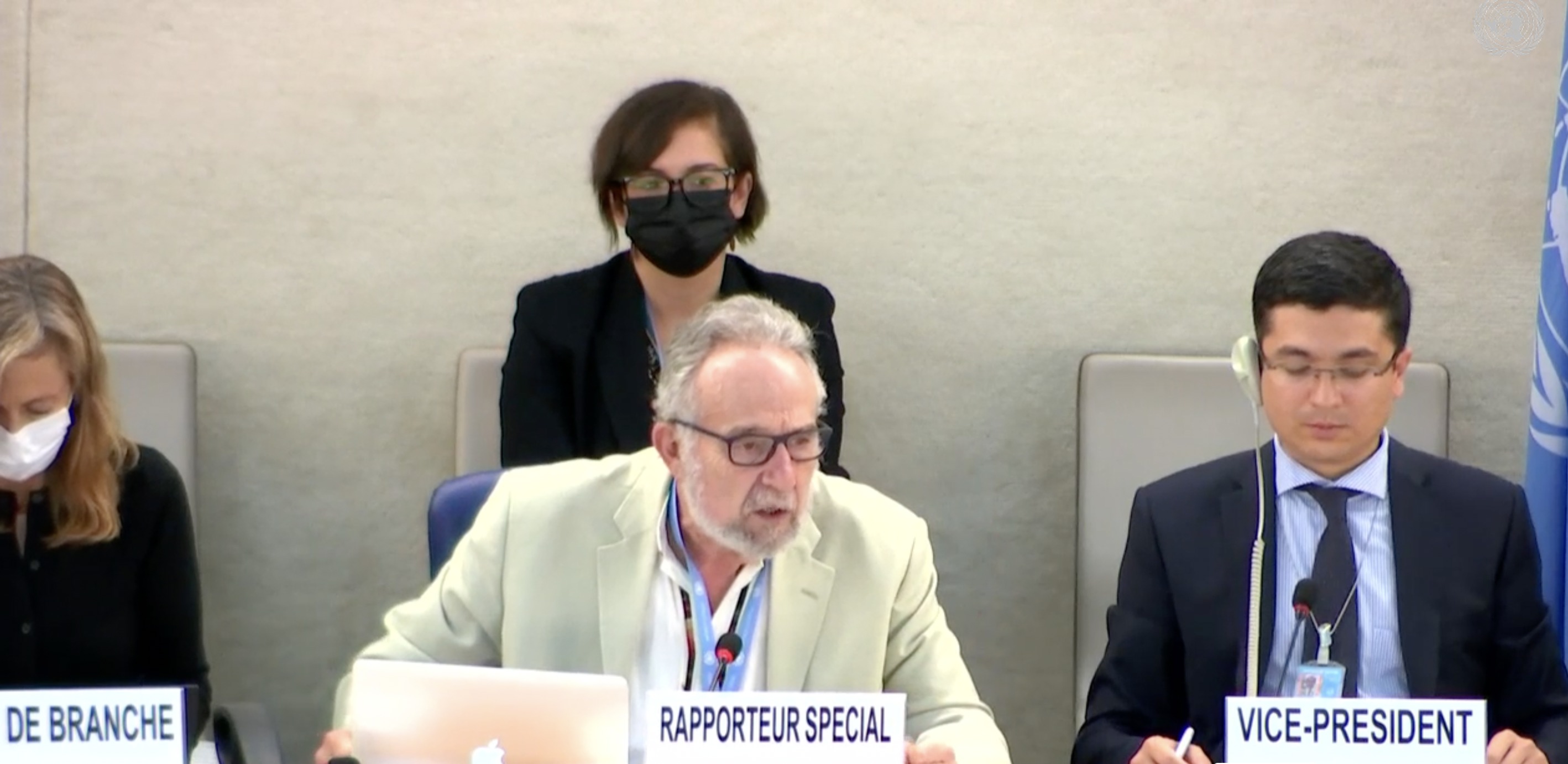By Razan Al-Shammari / GICJ
 On 14 September 2022, the Special Rapporteur on water and sanitation, Mr Pedro Arrojo Agudo highlighted the growing vulnerabilities of indigenous people and causally linked the failings in global governance to the scarcity of safe drinking water. He underlined the importance of deriving lessons and values from indigenous cultures when addressing the global water crisis. Indigenous peoples have endured centuries of colonisation, violence and turmoil. Nevertheless, they have adapted sustainable management of aquatic ecosystems and the democratic governance of safe drinking water and sanitation. However, today, the construction of hydroelectric dams and mining sanctioned by private companies have contaminated their water sources.
On 14 September 2022, the Special Rapporteur on water and sanitation, Mr Pedro Arrojo Agudo highlighted the growing vulnerabilities of indigenous people and causally linked the failings in global governance to the scarcity of safe drinking water. He underlined the importance of deriving lessons and values from indigenous cultures when addressing the global water crisis. Indigenous peoples have endured centuries of colonisation, violence and turmoil. Nevertheless, they have adapted sustainable management of aquatic ecosystems and the democratic governance of safe drinking water and sanitation. However, today, the construction of hydroelectric dams and mining sanctioned by private companies have contaminated their water sources.
Mr Agudo further stated that governments have the prior obligation to guarantee indigenous peoples their rights to self-determination, in addition to free and well-informed consultations before any intervention in their territories.
In agreement with the SR, indigenous people in many parts of the world have endured a water crisis for many years. The state government’s neglect and mismanagement of water infrastructure, water pollution, and high salinity levels are causing severe health problems in many countries, which substantially affects the livelihood of people.
Geneva International Centre for Justice (GICJ) urges immediate action to put an end to illegal acts committed by private and state actors such as mining, construction of hydropower dams and land- and water-grabbing. In adherence to International Humanitarian Law as well as Human Rights Law, GICJ reiterates that governments must facilitate access to water and sanitation for all, without discrimination.
We will be publishing a full discussion report on this discussion, stay tuned!
indegenous lives matter, water, sanitation, indegenous people, human rights, Justice, Geneva, Geneva4Justice, Justice, GICJ, Geneva, Geneva International Centre for Justice, HRC












